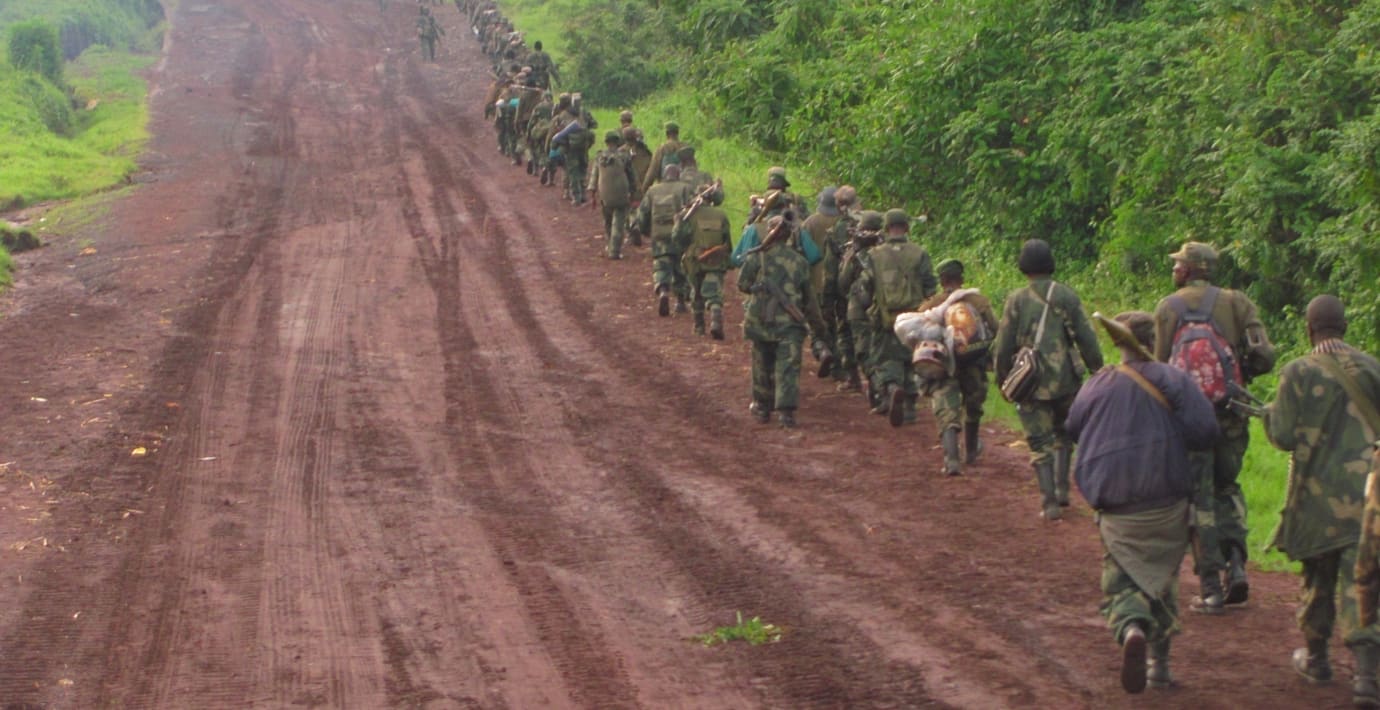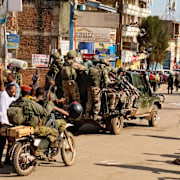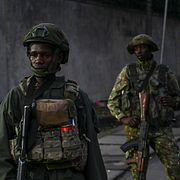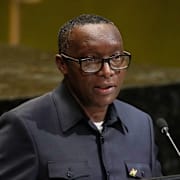
Civila fortsätter dödas i Kongo-Kinshasa trots avtal
Den Rwandastödda miligruppen M23 dödade minst 140 civila i Kongo-Kinshasa i juli trots fredsavtal och förhandlingar om vapenvila. Det skriver Human Rights Watch (HRW) i en ny rapport.
Enligt HRW ska de civila ha dödats i 14 olika byar vid nationalparken Virunga. Offren var främst etniska hutuer, flera av dem kvinnor och barn. Dödandet ska ha haft formen av rena avrättningar.
M23 förnekar att man haft något med dödsfallen att göra och kallar uppgifterna felaktiga.
bakgrund
M23
Wikipedia (en)
The March 23 Movement (French: Mouvement du 23 mars), often abbreviated as M23 and also known as the Congolese Revolutionary Army (Armée révolutionnaire du Congo), is a Congolese Rwandan-backed rebel paramilitary group. Based in the eastern regions of the Democratic Republic of the Congo, it operates mainly in the provinces of North Kivu and South Kivu, which border Uganda and Rwanda. M23 is the principal member of the Congo River Alliance, a coalition of rebel groups in eastern DRC.
M23 was established in 2012 by former members of the National Congress for the Defence of the People (CNDP), a Rwandan-backed rebel group largely composed of Rwandan-Congolese fighters. These combatants had previously integrated into the Armed Forces of the Democratic Republic of the Congo (FARDC) under the terms of a 2009 peace agreement, which also called for the transformation of the CNDP into a political party, reintegration of refugees, and incorporation of CNDP personnel into government roles. However, local opposition to the CNDP's leadership—accused of past human rights violations—impeded the full implementation of the agreement. On 6 May 2012, a group of these ex-CNDP fighters mutinied, forming M23 and citing the government's failure to uphold the peace accord. The group launched strikes during its first rebellion against the Congolese government that led to the displacement of large numbers of people. On 20 November 2012, M23 took control of Goma, the capital of North Kivu with a population of a million people, but was persuaded to withdraw from the city by the International Conference on the Great Lakes Region (ICGLR) because the Congolese government had finally agreed to negotiate with the rebel group. In late 2012, Congolese troops, along with UN peacekeeping troops, retook Goma, and the M23 announced a ceasefire and said that it wanted to resume peace talks.
A United Nations report found that Rwanda created and commanded the M23 rebel group during the 2012 operations (in 2024, when M23 resurfaced again, another UN report finds direct support from the Rwandan military). Rwanda ceased its support due to international pressure and the military defeat by the Congolese military and the UN peacekeeping forces in 2013.
In 2017, M23 remnants resumed their insurgency in the Congo, although it was largely a low-level insurgency. However, the M23 reorganized in 2022 and launched a subsequent offensive, which eventually resulted in the capture of the Congolese border town of Bunagana by the rebels. In November 2022, M23 rebels got close to the city of Goma and forced about 180,000 people to leave their homes after the Congolese Army had withdrawn from the region near the village of Kibumba. In June 2023, Human Rights Watch reported human rights abuses by M23 rebels in the Congo, including unlawful killings, rape and other war crimes. Allegations implicate Rwandan support for these actions, bringing concerns about war crimes and making the humanitarian situation worse in the region. The United Nations Security Council encouraged sanctions against the M23 leaders and implicated Rwandan officials. As of July 2025, the group occupies various major towns in eastern North Kivu and South Kivu including Bunagana, Kiwanja, Kitchanga, Rubaya, Rutshuru, and the cities of Goma and Bukavu.
Omni är politiskt obundna och oberoende. Vi strävar efter att ge fler perspektiv på nyheterna. Har du frågor eller synpunkter kring vår rapportering? Kontakta redaktionen



